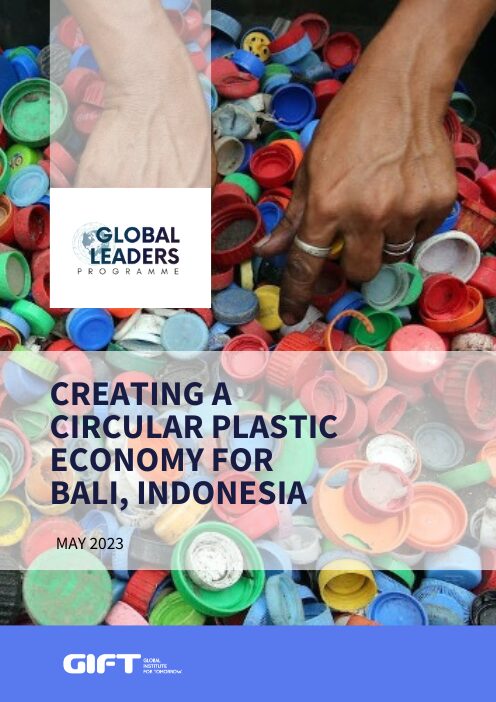Global plastic pollution has reached crisis levels, with approximately 400 million tonnes produced annually, much of it mismanaged. Each year, 8 million tonnes of plastic waste enter the ocean from coastal nations, causing an estimated US$2.5 trillion in damages to marine ecosystems. This pollution contaminates the food chain and water supplies, posing severe health risks to humans.
Tourism hotspots like Bali, which attracts millions of visitors annually, are particularly vulnerable. The island generates 1.6 million tonnes of waste per year, with residents, tourists, and businesses all contributing, and tourists alone produce more waste per day than locals. Plastic accounts for 20% (303,000 tonnes) of Bali’s waste, and 11% leaking into the ocean through illegal dumping, devastating marine ecosystems. Globally, recycling rates remain alarmingly low at just 9%, while most plastic ends up in landfills, illegal dumps, or is openly burned, releasing harmful greenhouse gases. With landfills nearing saturation, urgent action is needed to curb this escalating environmental disaster.
In partnership with Kibumi, this business plan addresses Bali’s largest waste streams—high-value plastic (HVP), low-value plastic (LVP), and organic waste. It provides commercially viable recommendations across the full waste management cycle—from collection and sorting to processing and manufacturing—positioning Bali as a potential circular economy model for tourism-reliant islands.
This business plan is composed of three key components:
- The Clean Bali Fund incentivises waste separation at source and partially funds waste management via a minor surcharge imposed on tourists.
- Community-owned and run, the co-ops will be the first point of collection for unsorted or sorted waste at the village level. Subsidies provided by the Clean Bali Fund, will prevent underpricing of LVP and organic waste processing to ensure both types of waste are properly managed.
- The Centres of Excellence or CoEs will aggregate and/or process HVP, LVP, and compost to be sold to respective buyers. CoEs will be the first in Bali with flaking capabilities and thus can sell HVP at a higher value.
Ultimately, this project aims to transform Bali into a global pioneer in the circular plastic economy, creating a scalable model for tourism-reliant islands across Indonesia, ASEAN, and beyond.


